
On behalf my co-organisers, I am writing to invite abstract submissions for the ‘Re-centring land conflicts in the post-globalisation order’ mini-conference (MC11) as part of the SASE 2026 Conference in Bordeaux (1-3 July).
sase.org/events/2026-...
Deadline: December 16th
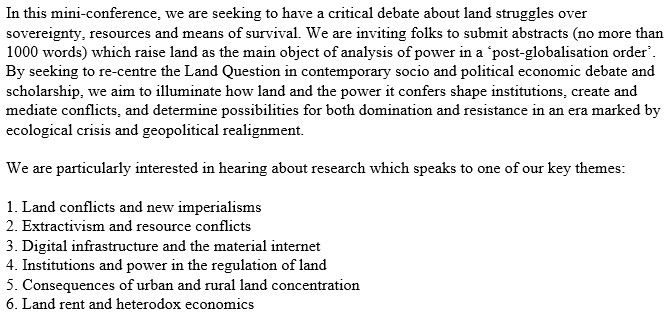
On behalf my co-organisers, I am writing to invite abstract submissions for the ‘Re-centring land conflicts in the post-globalisation order’ mini-conference (MC11) as part of the SASE 2026 Conference in Bordeaux (1-3 July).
sase.org/events/2026-...
Deadline: December 16th
The article focuses on the evolution of the land-based natural capital market in Scotland in light of the country's net zero efforts.
The article focuses on the evolution of the land-based natural capital market in Scotland in light of the country's net zero efforts.
www.mpifg.de/1343511/2025....

www.mpifg.de/1343511/2025....
"Moral Economies of the Polycrisis. Conflict, Critique, and Legitimation in Critical Times"
Workshop, June 16-17
University of Hamburg
Deadline for abstracts: 07/04
Supported by the Economic Sociology section of @dgsoziologie.bsky.social
linuswestheuser.com/cfp-moral-ec...
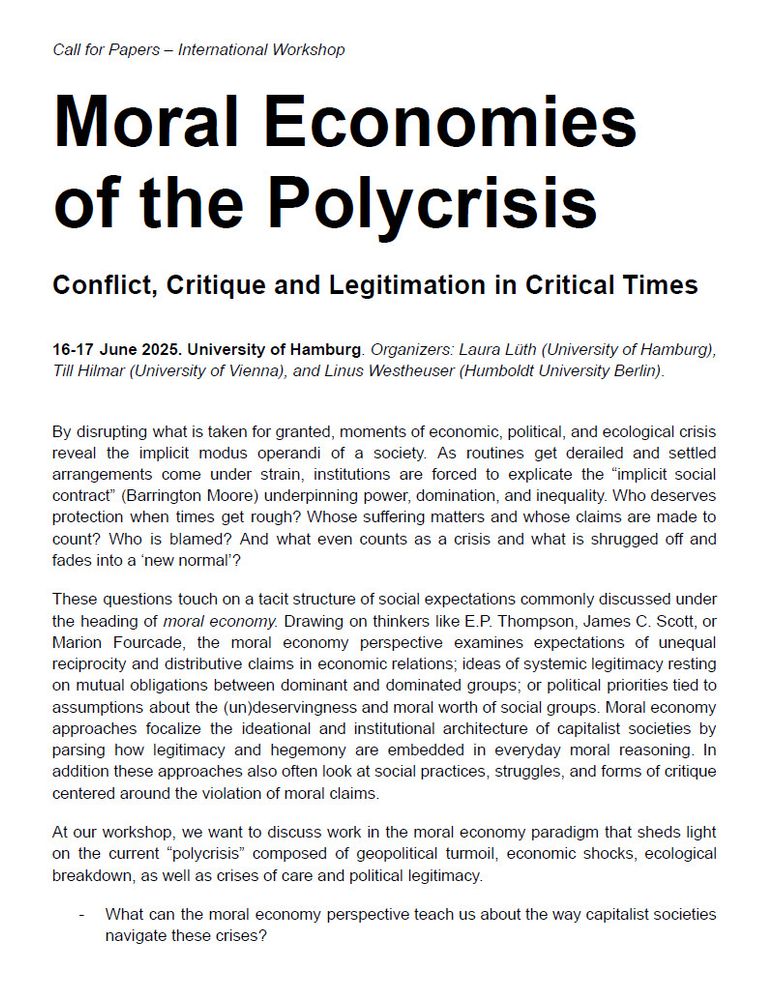
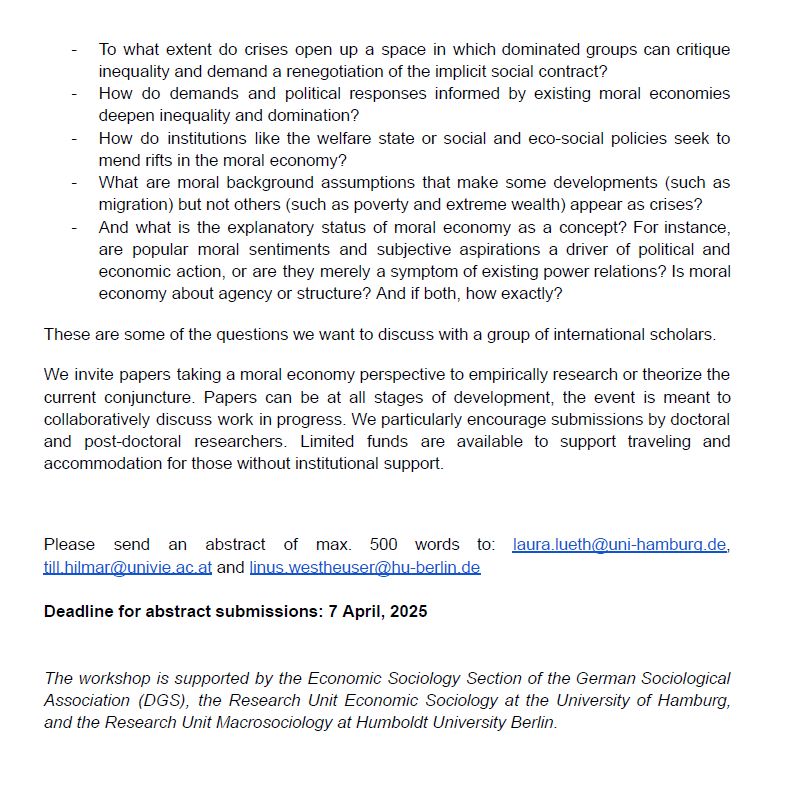
"Moral Economies of the Polycrisis. Conflict, Critique, and Legitimation in Critical Times"
Workshop, June 16-17
University of Hamburg
Deadline for abstracts: 07/04
Supported by the Economic Sociology section of @dgsoziologie.bsky.social
linuswestheuser.com/cfp-moral-ec...
ℙ𝕠𝕝𝕚𝕥𝕚𝕔𝕒𝕝 𝕖𝕔𝕠𝕟𝕠𝕞𝕪 𝕠𝕗 𝕗𝕚𝕟𝕒𝕟𝕔𝕖 𝕤𝕦𝕞𝕞𝕖𝕣 𝕤𝕔𝕙𝕠𝕠𝕝 𝟚.𝟘
- 3 days @ Watson Institute, Providence
- PhD candidates (2nd year+), post-docs & assistant profs
- All expenses covered (🙏 sponsors)
- A-team of instructors 🙏💪
- Mark Blyth 😎
Apply by 𝐌𝐚𝐫𝐜𝐡 𝟏. Link below. Please share!
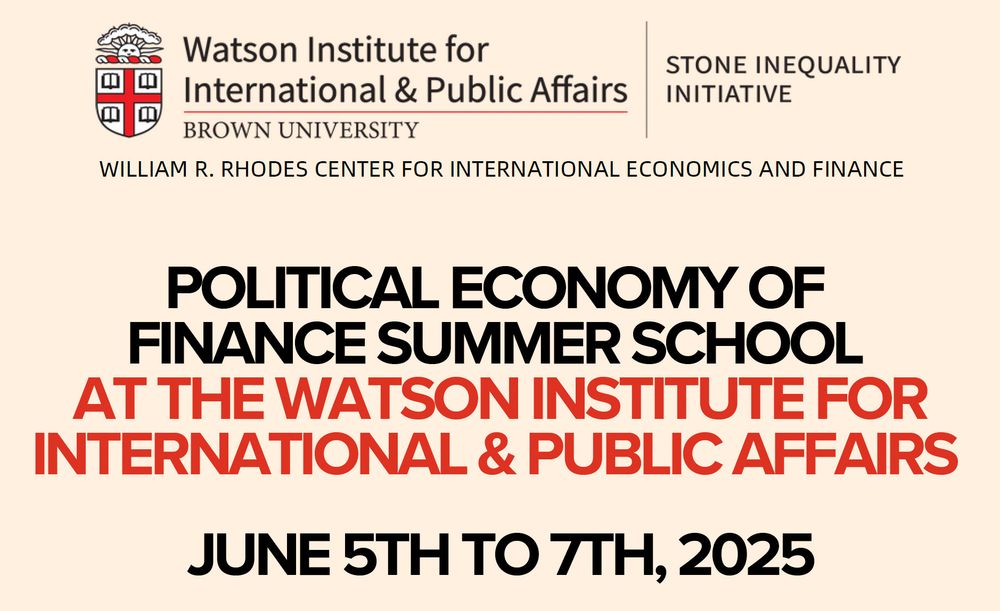
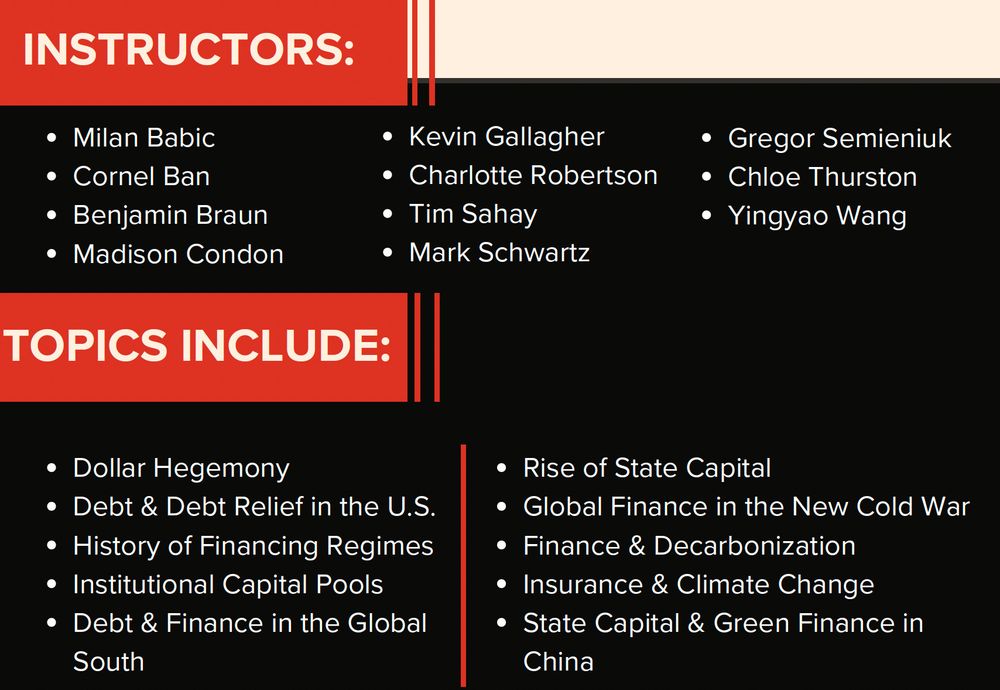
ℙ𝕠𝕝𝕚𝕥𝕚𝕔𝕒𝕝 𝕖𝕔𝕠𝕟𝕠𝕞𝕪 𝕠𝕗 𝕗𝕚𝕟𝕒𝕟𝕔𝕖 𝕤𝕦𝕞𝕞𝕖𝕣 𝕤𝕔𝕙𝕠𝕠𝕝 𝟚.𝟘
- 3 days @ Watson Institute, Providence
- PhD candidates (2nd year+), post-docs & assistant profs
- All expenses covered (🙏 sponsors)
- A-team of instructors 🙏💪
- Mark Blyth 😎
Apply by 𝐌𝐚𝐫𝐜𝐡 𝟏. Link below. Please share!

